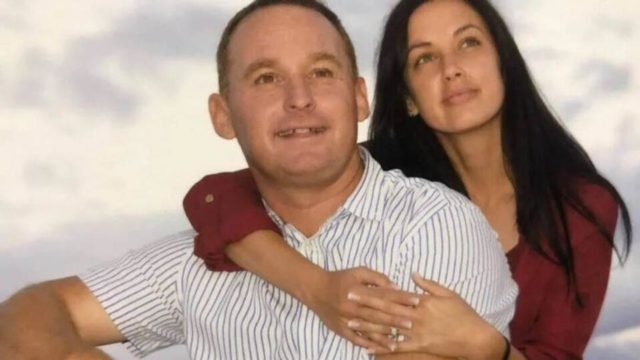Northern Cape High Court Judge Lawrence Lever believes that Suretha Brits has a “strong prima facie case to answer to” and that she failed to provide any exceptional circumstances that entitled her to be granted bail.
SURETHA Brits, 30, who is to stand trial for allegedly arranging the contract killing of her husband – Leon Brits, 41, the owner of the Pofadder Hotel – will remain behind bars after an application to appeal her bail was dismissed in the Northern Cape High Court on Wednesday.
She was denied bail in the Pofadder Magistrate’s Court in April.
Northern Cape High Court Judge Lawrence Lever believed that Brits had a “strong prima facie case to answer to” and that she had failed to provide any exceptional circumstances that entitled her to be granted bail.
He pointed out that Brits’ ill health, business interests and the well-being of her children – who needed her emotionally – were not sufficient grounds to justify her release on bail.
He agreed that while Brits was not “in the pink of health”, she was not facing any life-threatening health conditions and had access to medical care and her family doctor, if so required.
Lever was not convinced that her and the deceased’s (Leon Brits) business interests amounted to any “pressing” reasons.
“The appellant (Suretha Brits) conceded during cross-examination that she had closed down her business, SSS Suppliers, several months before her arrest. Her version of businessmen waiting in the wings to invest was too vague to be given any credibility.
“The farm owned by the deceased is rented out and no management is required. In any event the farm falls within the estate of the deceased and without an executor the appellant would not be able to make decisions in respect of this property.”
Lever stated that both the Pofadder Hotel and self-catering chalets belonged to the deceased, which, according to evidence, was operating as one entity.
“Consequently, the properties fall into the estate of the deceased. It was established that Brits was employed as a manager in the accommodation business. She conceded that there are staff members who can, on a day-to-day basis, keep the hotel going. However, she maintains that she is the only person who has signing powers on the banking accounts.”
Lever believed that it would be more beneficial for an executor and manager to be urgently appointed to take over the business operations.
“It is not entirely clear how these businesses have managed whilst the appellant has been detained, if she is the only person who can operate the relevant bank accounts. In and of themselves, the business interests do not constitute the required exceptional circumstances.”
He added that Brits’ mother and sister, as well as a daycare mother, were taking care of her three minor children, who are between the ages of 10-12 years.
“Legal representative for Brits, advocate Sharon Erasmus, submitted that she and the children shared a close bond and depended on each other for emotional support. Senior advocate Hannes Cloete for the State argued that it was trite that every child would need his or her mother. To qualify as an exceptional circumstance she would have to establish a particular need for emotional support in one or more of the children that went beyond the normal requirement.
“Cloete submitted that the only way he could challenge the appellant’s assertions was to put her children on the stand. He stated that as a responsible prosecutor he did not want to do this as it would traumatise them.”
Lever agreed with the State that the expert opinion of the trauma counsellor who had consulted with the family should have been presented to the court.
“Evidence supports the State’s case that while the circumstances of the children are not ideal, they are better off than most children whose parents are facing criminal charges and detention awaiting trial.”
He was not convinced that Brits was likely to cause any harm to anyone or endanger the safety of the public in general if she was released on bail, or that she posed a flight risk.
“Nor do I believe that she will commit a schedule 1 offence. She has family and historical ties in the area. Also, the evidence shows that her passport has expired. The opportunity to influence or intimidate witnesses has been minimised as the investigation has been completed, in a sense that witness statements have already been taken. However, there is evidence that she contacted a State witness, Lize-Marie Fouche, twice.
“Although some explanation has been given, I’m not entirely satisfied with the explanation to the second incident. Evidence shows that Brits disregarded the warning of the investigating officer and the warnings of her own legal representative.”
Lever noted that Brits had sought to mislead the police in their initial investigations by trying to incriminate her brother-in-law and certain employees of the deceased, where the allegations proved to be baseless.
“This evidence does show that, if given the opportunity, the appellant might conceal or destroy evidence. However, on the available evidence, I cannot find that there is a likelihood that she would do so.”
He also did not believe that she would undermine the justice system if she was released on bail, disturb the public order or undermine public peace and security.
Brits is expected to appear in the Upington High Court, along with her co-accused Amantle Bareki, 24, and Enrich Williams, 34, on November 15 for the criminal trial.
The charges against them include murder, aggravated robbery and perjury as well as the possession of an illegal firearm.








